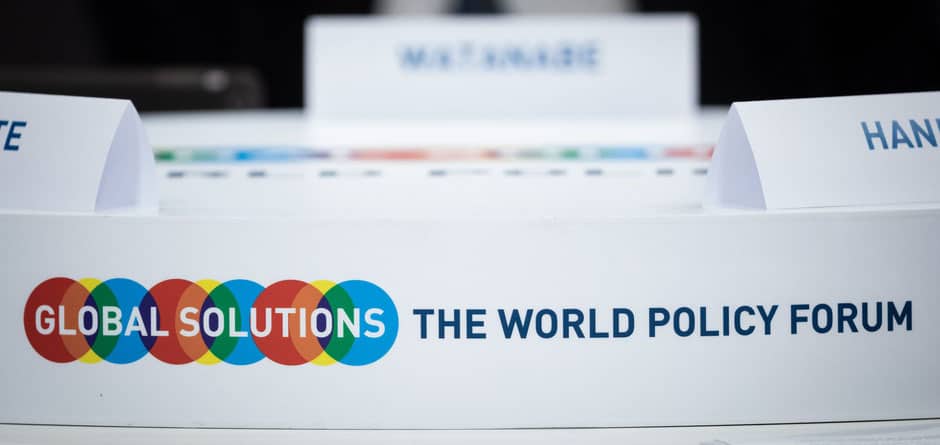A commentary by Melodi Kaya (YGC, 2019)
In the US, the richest one percent benefited the most from the economic growth in the last decades, wrote Nicholas Buffie on the Center for Economic and Policy Research Blog. The remaining 99 percent experienced an erosion of worker rights, weakened public services, unequal pay and other inequalities.
These changes do not occur in a vacuum; they happen continuously, all around the world, in different formats, and sever underrepresented people’s ties with the society at large, polarizing the civic participation even more.
This raises the question of why. Why are we still struggling to put an end to this? Why can’t we give everyone an equal chance to take part in this dialogue – in society? These are questions that kept on popping up during the Global Solutions Summit.
As young people who want to change what’s happening around the globe, the question increasingly shifts away from this seemingly endless loop of “but why?” to the active version of “How do we tackle this?” This question could not be overheard during the summit and beyond.
Inequality does not happen by accident
It does not bring much value to the conversation to recite what is already known. It is more important to try to find solutions that tackle the inequalities. By failing to do so, people are prevented from realizing a human need to participate in a dialogue within the society.
“Extreme inequality does not happen by accident and it is a result of deliberate choices across the world,” Ignacio Saiz, Executive Director of Center for Economic and Social Rights, said at the Global Solutions Summit in Berlin.

A popular view on inequality is that there is a close correlation between economic and political power as can be inferred from Saiz’s remark on deliberate policy choices. People with economic power often have a massive impact on policies that are implemented. These policies generally favor their position and support the status quo.
However, sugar coating this issue does not help. According to Chidi King, Director of Equality at the International Trade Union Confederation, we first need to start with being honest when we talk about social cohesion. “We all need to recognize that we are different, and in order for all of us to participate in the society, we still need to come from a place of collective action and understanding,” King said.
Social progress does and always will take long. Change in political participation and representation will only happen when minorities are empowered. Like inequality, social cohesion will not happen by accident either. It will be a result of a systematic and collective action.
What can we do?
What can we do to achieve it then? In short, our duty is to act collectively towards equality even though our policies might not change overnight. We can and should still take steps towards social cohesion in our capacity by coming and acting together.
To elaborate, we must acknowledge our differences and respect them. Participating in society does not mean streamlining the humans in it, but rather responsibility engaging in dialogue and leaving no one behind, regardless of the differences. Once we acknowledge, recognize and overcome our biases to act collectively to challenge the status quo, we will have moved one step closer to social cohesion.
When it comes to achieving social cohesion, there are no magic beans, and that is a good thing. It will take time. It is our duty as citizens to come together, act collectively and consistently against inequalities, and encourage understanding for one another, even when our policy makers might choose to do otherwise.
The views and opinions expressed in this article are those of the authors and do not necessarily reflect the views of the Global Solutions Initiative.
